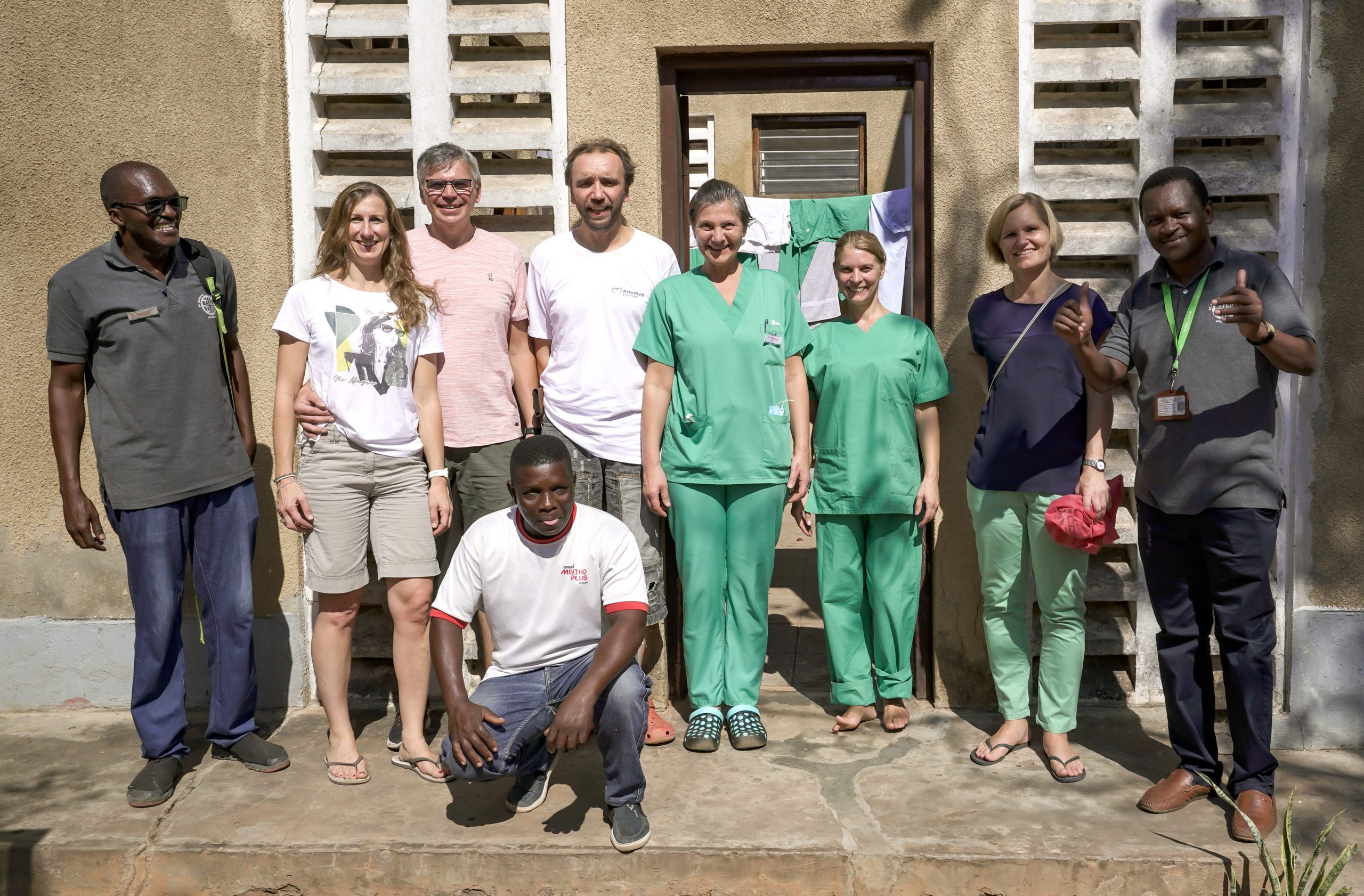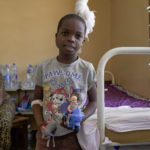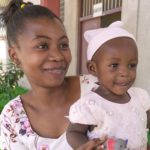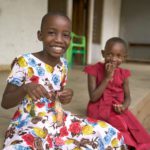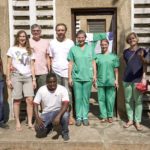Dr. Titania Eberle (3rd from right) is a gynaecologist and was on a humanitarian mission abroad with Artemed Stiftung for the first time. In this interview, she gives us an impressive account of her personal experiences at St. Walburg’s Hospital in Nyangao.
Artemed StiftungHello Tag Ms. Eberle. Your visit to Tanzania last year was the first time you had been on a humanitarian mission abroad. Why did you decide to do this and why Artemed Stiftung?
Eberle: I've been interested in using my expertise to help people in need on a voluntary basis for a long time. That's why I've offered asylum consultations in the past, among other things. I had actually already applied for an assignment in Sierra Leone with another organization, but this was then cancelled at short notice due to incidents of corruption in the country. However, as I had already planned everything for an absence at home, I really wanted to make the most of this period. So I looked around and luckily I quickly got the opportunity to help with Artemed Stiftung at St. Walburg’s Hospital .
Artemed Stiftung: So you only had a short time to prepare for your stay there?
Eberle: Yes, unfortunately. I would have liked to have been much better informed about the country, the people and the hospital beforehand. However, I was very lucky that Dr. Solveig Groß traveled to Tanzania with me; she had already been to the hospital in the past, knows the local people and has an incredible amount of experience.
Artemed Stiftung: What was the biggest problem for you at the beginning?
Eberle: Although I was given a very warm welcome, at first I didn't really have the confidence to actively intervene in everyday life there and help out. I was grateful for the presence of Dr. Groß, who immediately showed me how best to deal with my Tanzanian colleagues. She already knew many of the doctors and nurses from the past and it was clear that there was a great deal of mutual trust here. Another problem for me was, above all, the language: you can't get very far with the rural population there with English alone. You need the active support of English-speaking staff on site, who then translated very often; together it went well. In order to communicate well with the patients themselves, knowledge of Kiswahili is essential - I was only able to communicate with my hands and feet.
Artemed StiftungDuring your stay, you worked primarily in the field of obstetrics. You have certainly experienced and seen a lot here. Also a lot that is probably very different from your everyday life in Germany.
Eberle: Of course, you first have to get used to the conditions in the delivery room, during births and caesarean sections. The hygiene situation in particular is very different from that in German hospitals and there is certainly room for improvement. I also noticed that the staff have very different levels of training: there are doctors, midwives and nurses with a very good level of knowledge, while others have major deficits.
Artemed Stiftung: Was there a situation that was particularly moving for you?
Eberle: A premature baby was delivered by caesarean section at Tag by Dr. Groß. The Baby weighed only 1700 g. I only witnessed it by chance and was very shocked that there were so few opportunities to help the child. The little boy was only rubbed down a little and then placed in a crib where he then lay alone. There is St. Walburg`s Hospital no pediatrician who could have cared for him. Fortunately, he was able to breathe on his own at birth, as there was no resuscitation unit available either. This image of the tiny creature in the crib has left a strong impression on me.
Unfortunately, as I have learned, there is a huge shortage of pediatricians in Tanzania and the hospital cannot afford the few that are available. So the solution cannot be that the hospital should employ someone to do this. Rather, plans have now been developed as to who from the hospital's existing team of doctors could obtain such an additional qualification. A suitable candidate has now been found and his training is being supported by Artemed Stiftung .
Artemed StiftungSo on the one hand you experienced some negative situations, but on the other hand you were also able to contribute to positive things. What do you personally take away from this stay?
Eberele: First of all, it showed me how well we are actually doing at home. The very fact that you have to buy (and pay for) the medication yourself in a pharmacy before any treatment is unimaginable for us in Germany. If you don't have any money or the required preparation is not in stock, there is no treatment.
For me personally, of course, it was incredibly enriching and has also helped me professionally. It's a mutual benefit, I also learned a lot there about diagnostics and therapies without the possibilities we have here. That's very valuable, for me too. I've also learned to be more self-confident about my skills and that you can achieve your goal with the necessary know-how, even without high-end equipment.
Artemed StiftungNow one last question for you: What would be your recommendation on how to support the hospital most effectively in the future?
Eberle: Of course, I have now gained an impression, particularly in the field of obstetrics and pediatric care. Here I see great potential to significantly improve the level of care through foreign assignments, following the example of gynecology. In other words, a good pediatrician from Germany who trains the staff on site and ensures that the knowledge imparted is also applied through repeated assignments.
Artemed StiftungDear Ms. Eberle, thank you for taking the time for this interview and, of course, for your work in Tanzania and the valuable output you have brought with you.

